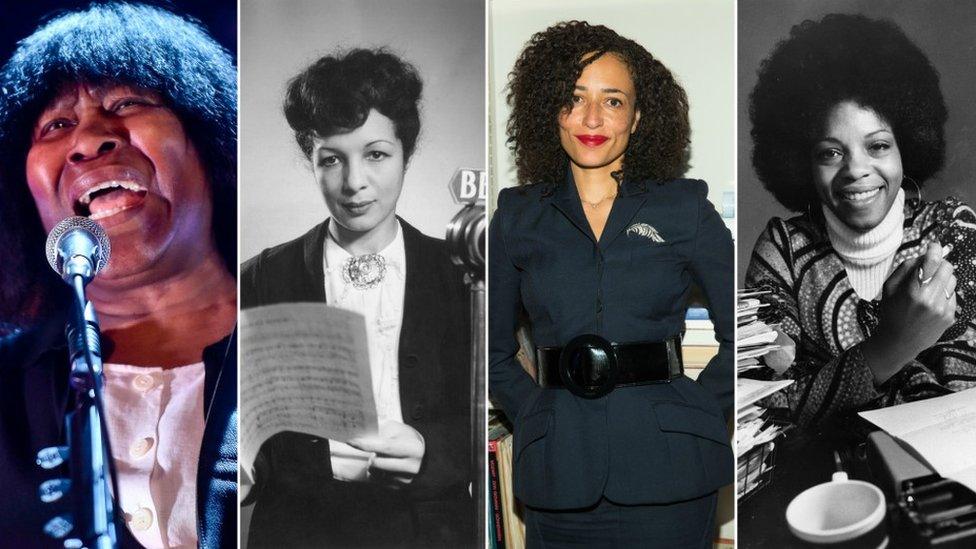Why is black British history so important?
- Published
- comments

Many believe children should learn about black British history in school
The recent death of an African-American man called George Floyd has sparked lots of conversations about racism and how it can be tackled.
Celebrities like George the Poet have highlighted the importance of education when it comes to stamping out the discrimination many black people around the world face because of the colour of their skin.
Campaign groups and charities like The Black Curriculum and Fill in the Blanks have also spoken out on the importance of black history being taught in schools.
These campaigners believe all children and young people need to learn about the important roles black people have played throughout British history and the many contributions they have made to society today.
Where it all began - the Roman Empire
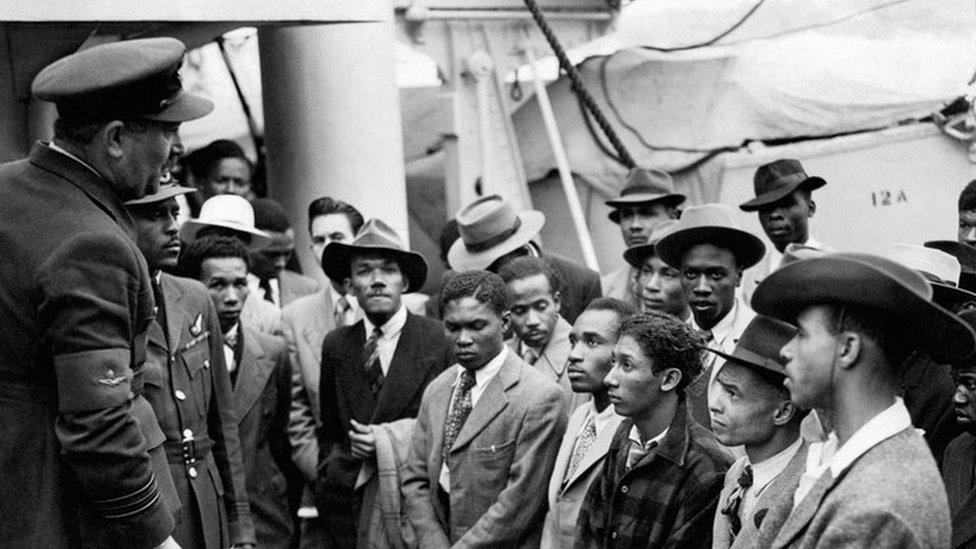
There were black people in Britain before the Windrush generation arrived in 1948
It's widely believed that black people first arrived in the UK during the 1950s. This group, who are known as the Windrush generation, came to England from the Caribbean to work after the Second World War.
However, historical evidence suggests black people were actually living in Britain hundreds of years earlier. In fact, it's thought that they've had a presence in the UK since the Roman Empire. The Empire was the largest in the ancient world and it was made up of people from lots of different countries and cultures.
Britain found itself under Roman rule between 43 and 410 AD. People travelled within the Empire because of trade and to serve as part of the Roman army. People from North Africa are believed to have first come to Britain in the second and third centuries.
Black Tudors
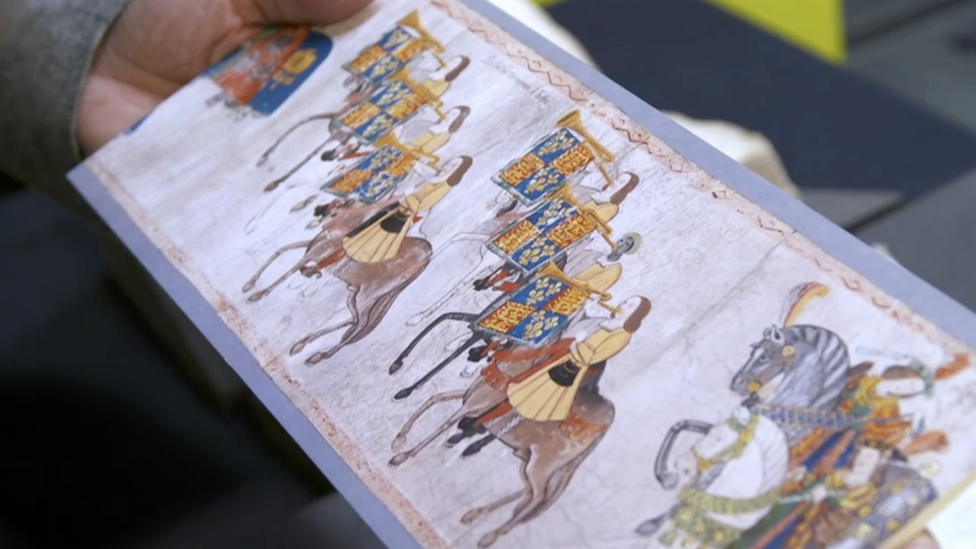
John Blanke can be seen on a roll from the 1500s at the National Archives
There is also evidence that black people lived in the UK during the Tudor period which was between the years 1485 and 1603.
John Blanke was a black royal trumpeter for Henry VII and Henry VIII. Black people held lots of other jobs during this time. There were porters, silk weavers, shoemakers and servants.
Historian Miranda Kaufmann has carried out lots of research on black Tudors. She's found records which show there were hundreds of Africans living in England during the Tudor period.
The transatlantic slave trade
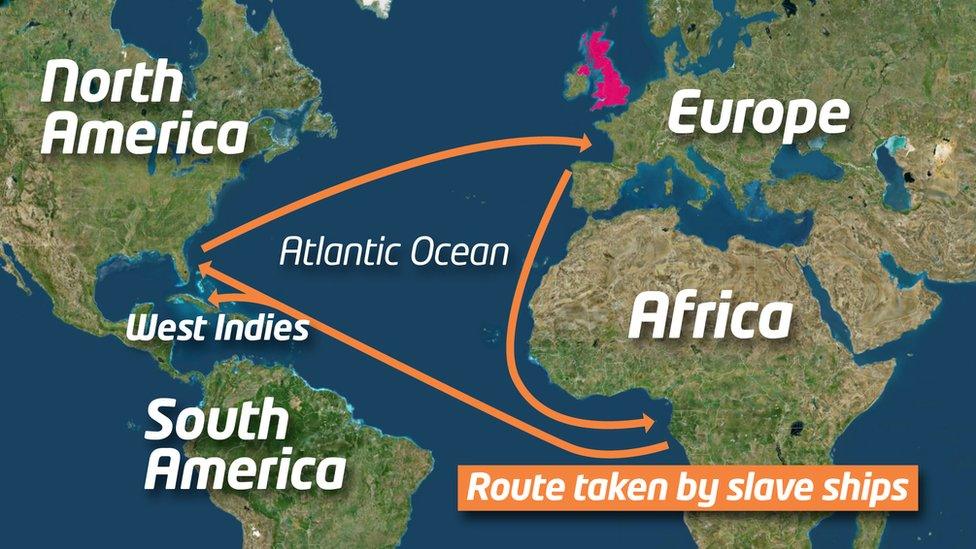
The orange arrows on this map show the journeys along which slaves were transported to be bought and sold. This was called the Atlantic slave trade, as it took place across the Atlantic Ocean
From the 15th century, black people were being taken from Africa and brought to the Caribbean, North America and South America as slaves. This was part of something known as the transatlantic trade.
Countries including Portugal, America and Britain were all involved in the slave trade. A man called John Hawkins is believed to have been the first English slave trader.
Black men, women and children were also brought to England to work as slaves from the late 16th century onwards.
The Abolition of the Slave Trade Act was passed in 1807 which made it illegal for the British to be involved in the slave trade. However, slaves in territories controlled by the British Empire weren't freed until 1838.
World Wars I and II
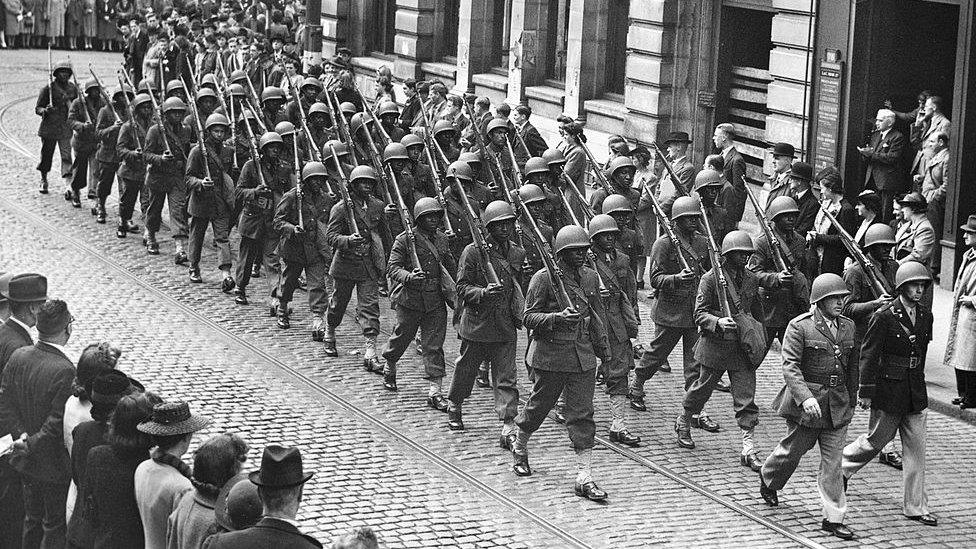
Many African American soldiers were stationed in Britain during the Second World War
Black people served in the British army during the First World War. Many were recruited from African and Caribbean countries to help Britain in the fight against Germany.
Some of these soldiers ended up settling in Britain once the war ended, but they faced discrimination. They struggled to find jobs and white soldiers weren't happy that black soldiers were living amongst them, in particular those who did end up finding employment and marrying white women.
This led to violent race riots which took place across a number of Britain's cities and towns in 1919.
Black soldiers also fought for Britain during World War II and once again, thousands were recruited from African and Caribbean nations to assist in the war effort. African-American soldiers were also stationed in Britain.
When the war ended, many black men and women answered the call to come to the Britain to work as there was a shortage of employees once the war had ended.
The first big group came in 1948 on the Empire Windrush which sailed from the Caribbean to Tilbury in Essex. However, life for many of them was difficult and they experienced lots of racism.
Why is black British history so important?
Many feel black British history is significant because it shows that black populations have been in Britain for a very long time and have made lots of contributions, something which a lot of people aren't taught in school or as part of their studies.
The UK is a multicultural society so it's important that all the different cultures are recognised and celebrated.
- Published2 July 2020
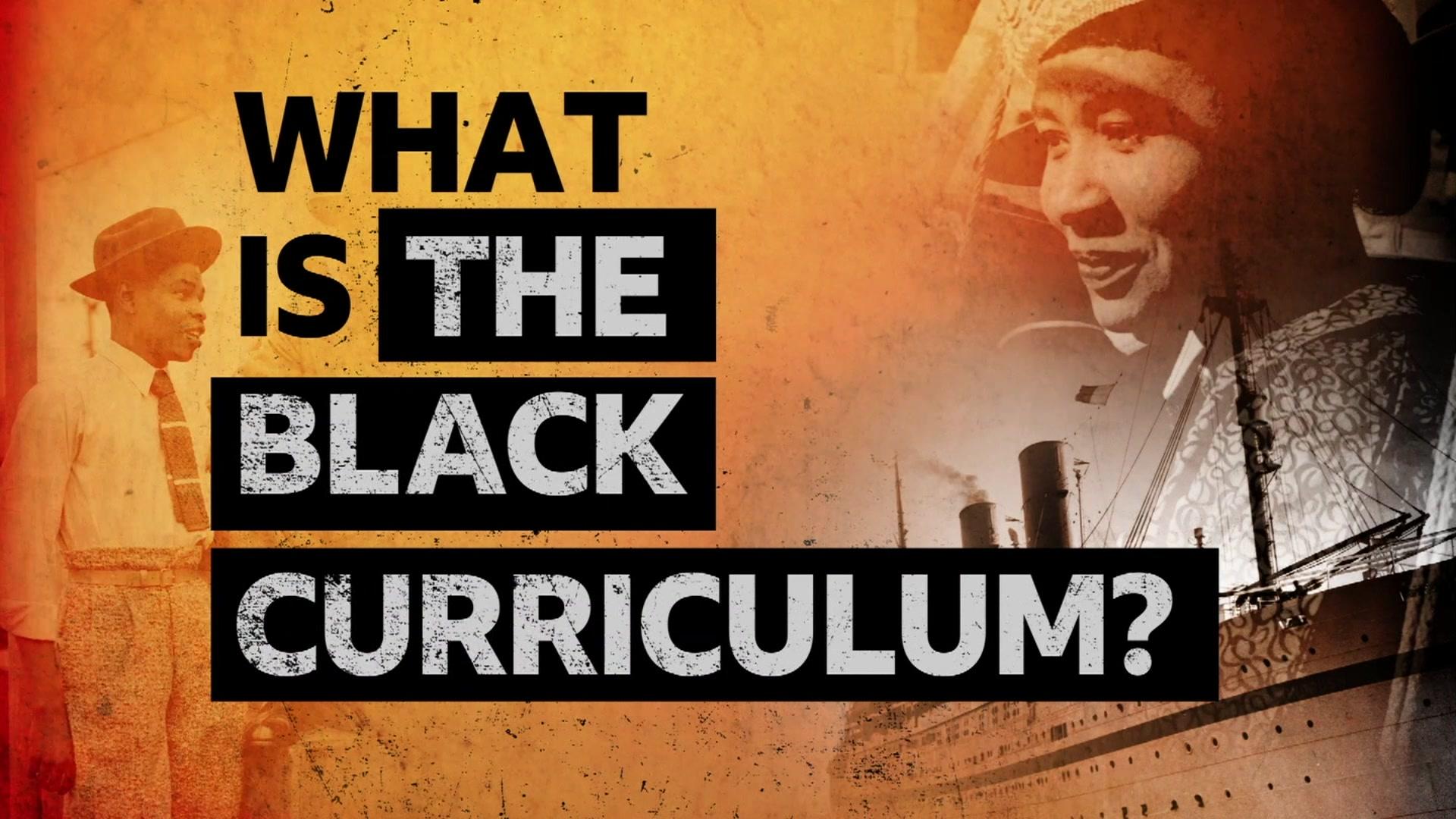
- Published2 October 2017

- Published7 October 2019
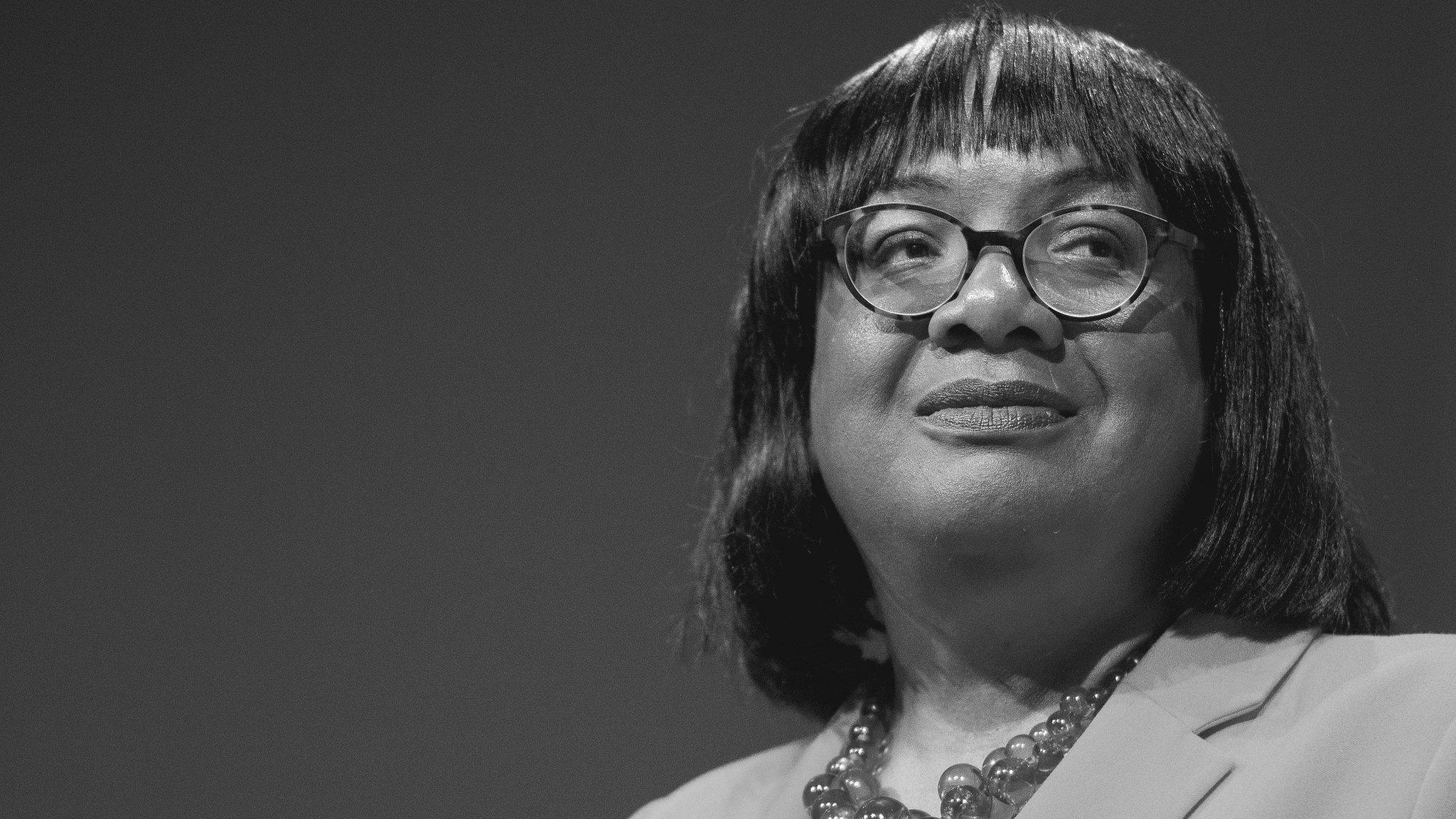
- Published26 September 2023
